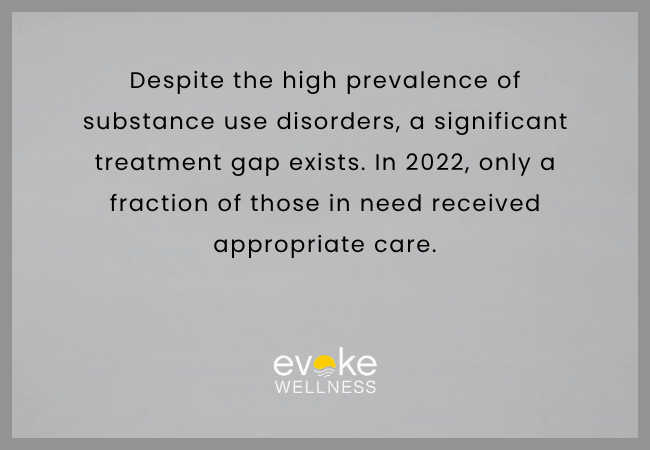Making the choice to enter rehab isn’t easy. It’s often one of the hardest and most personal decisions someone struggling with addiction can make. The idea of stepping away from home, work, family, and responsibilities to focus entirely on healing can be both daunting and life-changing. But how do you know if inpatient rehab is truly the right path for you?
Inpatient rehab, or residential treatment, offers a structured environment where individuals can receive intensive support while being removed from triggers and distractions. It’s designed to be immersive, and for many people, it offers the stability and safety they need to rebuild their lives. This blog explores the signs that inpatient rehab might be the right fit, what the experience is like, and how to make an informed decision about your recovery.
What Is Inpatient Rehab?
Inpatient rehab is a full-time, live-in treatment program designed for individuals with moderate to severe substance use disorders or co-occurring mental health challenges. The primary goal is to provide a safe, stable space where a person can focus entirely on recovery, free from the stressors of daily life.
Typically lasting between 30 and 90 days, inpatient treatment includes medical supervision, daily therapy, and structured activities. Residents receive both clinical care and emotional support from licensed professionals, peers, and often family members. For many, it’s the first time they’ve had uninterrupted time to work on the issues underlying their addiction.
Who Needs Inpatient Rehab?
Not everyone struggling with addiction requires inpatient care. For some, outpatient programs provide enough structure and support to maintain recovery. But there are clear indicators that inpatient treatment may be a better option.
If you’ve tried outpatient rehab and relapsed, struggle with co-occurring mental health conditions, or live in an environment that contributes to your substance use, inpatient care may offer the stability you need. Likewise, if you have a long history of addiction or your substance use has led to significant physical or psychological harm, inpatient rehab gives you a safe space to begin recovery with intensive support.
Understanding the Emotional and Physical Toll of Addiction
Before deciding on inpatient rehab, it’s important to understand what untreated addiction can do to a person. Beyond the physical damage caused by long-term substance use, addiction often creates emotional and psychological scars. Depression, anxiety, trauma, and isolation are common companions of addiction, and without treating these underlying issues, true recovery remains elusive.
The structure of inpatient rehab allows these co-occurring challenges to be addressed simultaneously. A dual diagnosis treatment program in Ohio is specifically designed for individuals facing both substance use and mental health conditions, offering an integrated approach that leads to more sustainable healing.
The Structure of a Typical Day in Rehab
Many people wonder what life is like inside a rehab center. While each facility varies, the routine is generally structured, consistent, and intentionally predictable—elements that are key in helping clients regain a sense of safety and stability.
Mornings typically begin with meditation, reflection, or light physical activity, followed by group therapy sessions. Afternoons often include individual counseling, educational workshops, and holistic therapies like yoga or art. Evenings are spent processing the day in community groups or participating in sober recreational activities.
It’s this rhythm that helps many people in early recovery stabilize emotionally and physically. Over time, this structure becomes a foundation that clients can take with them into the outside world.
The Role of Detox Before Inpatient Care
Before someone can fully engage in inpatient rehab, their body and mind must be free from the immediate effects of substances. This is where medically supervised detox becomes essential. Depending on the substance, withdrawal symptoms can be uncomfortable, painful, or even life-threatening.
A medical detox center in Ohio offers a safe, monitored environment where trained professionals help manage symptoms, provide medication if needed, and offer emotional support. Detox alone is not treatment, but it is often the necessary first step toward long-term recovery.
How Residential Treatment Supports Long-Term Recovery
One of the strengths of inpatient rehab lies in its immersive nature. Unlike outpatient care, there’s no opportunity to return to triggering environments at the end of the day. Instead, individuals remain in a healing-focused space where every activity is designed to support recovery.
Being in a residential treatment center in Ohio allows clients to step away from harmful routines and learn new ways of thinking, feeling, and coping. They begin to establish boundaries, process past trauma, and rebuild self-esteem—often for the first time in years. These internal shifts are critical in breaking the cycle of addiction.
Intensity and Safety in Inpatient Programs
For those in the early stages of recovery, intensive support can make all the difference. A high level of structure, combined with daily therapy and accountability, can help someone who’s just beginning their journey stay on track and feel less overwhelmed.
An intensive inpatient treatment program in Ohio provides exactly that: robust therapeutic services, 24-hour support, and a tailored recovery plan. Whether someone is dealing with years of substance use or entering treatment for the first time, this level of care can help them stabilize and begin meaningful work toward change.
Treating Alcohol Use Disorders Safely
Alcohol withdrawal is among the most dangerous types of withdrawal, with symptoms ranging from tremors and seizures to hallucinations and delirium tremens. For anyone dependent on alcohol, medical detox followed by inpatient care is often the safest and most effective route.
An alcohol addiction treatment program in Ohio ensures that withdrawal is managed with medical care, and long-term habits are addressed in a therapeutic environment. From managing cravings to rebuilding life skills, this type of focused treatment gives individuals the tools to maintain sobriety.
Addressing Substance-Specific Needs in Rehab
Not all substance use disorders are the same. The challenges someone faces with prescription opioids are different from those associated with methamphetamine, benzodiazepines, or cocaine. Effective inpatient rehab programs offer personalized treatment that reflects the specific substance and the individual’s history.
A drug detox center in Ohio will tailor the detox protocol and therapeutic interventions based on each client’s substance of choice, medical history, and mental health needs. Once stabilized, these individuals can transition into inpatient care where the focus shifts from physical recovery to emotional healing and behavioral change.
Why Choose Evoke Wellness?
At Evoke Wellness at Hilliard, we provide more than just a safe place to heal. We offer compassionate, evidence-based care rooted in dignity, connection, and clinical excellence. Our team understands that recovery is deeply personal, which is why we meet each person where they are and build treatment plans that reflect their goals, strengths, and needs.
Whether you’re just starting to consider treatment or you’ve been through this journey before, our programs—including our alcohol addiction treatment program in Ohio—are designed to help you reclaim your life. Our beautiful, comfortable setting in Hilliard promotes healing and provides the privacy and peace many people need to focus fully on recovery.
Conclusion
Inpatient rehab is not a one-size-fits-all solution. But for many, it’s the structured, supportive space they need to begin the process of healing. If your addiction has impacted your relationships, your job, or your health—or if you’ve tried to quit before and couldn’t do it alone—it may be time to consider this higher level of care.
The road to recovery is never easy, but you don’t have to walk it alone. At Evoke Wellness at Hilliard, we are here to help you take the first step toward a life of freedom, clarity, and purpose.
Call us today at 866.430.9267 and speak with someone who understands what you’re going through. You’re not just choosing treatment—you’re choosing a new way to live.
Frequently Asked Questions (FAQs)
What is inpatient rehab and how does it work?
Inpatient rehab is a live-in treatment program for individuals with substance use or co-occurring mental health disorders. It offers 24/7 care, structured therapy, and support to help individuals achieve long-term recovery.
How long does inpatient rehab typically last?
The length of stay in inpatient rehab usually ranges from 30 to 90 days, depending on a person’s specific needs, treatment progress, and substance use history.
How do I know if I need inpatient rather than outpatient care?
If you’ve experienced multiple relapses, have severe addiction, co-occurring mental health issues, or lack a stable support system at home, inpatient rehab may be a better fit.
Is detox included in inpatient rehab programs?
While not always included in the same facility, detox is a necessary first step before inpatient rehab. Some centers coordinate or provide medical detox as part of their treatment plan.
Can my family be involved during my treatment?
Yes, many inpatient programs encourage family involvement through therapy sessions, educational workshops, and visitation to help rebuild healthy relationships.



